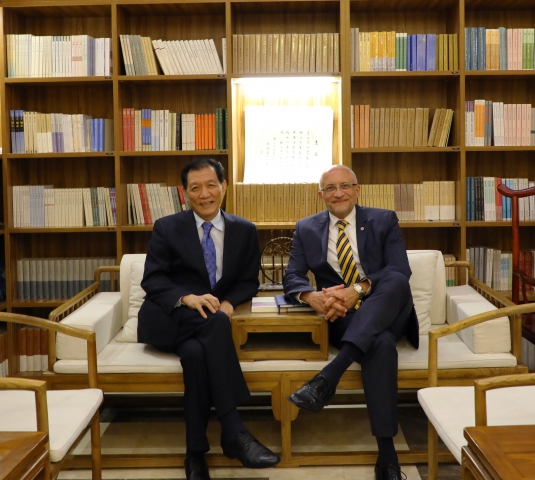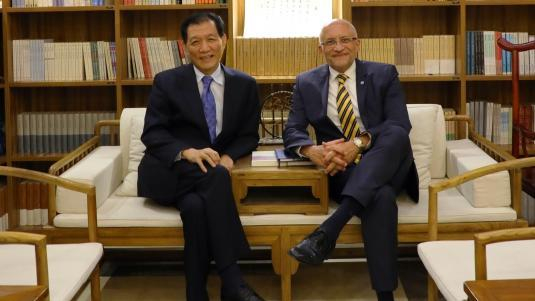
One of them was with the leadership of the Publishers Association of China, PAC. Hugo was received by President Liu Binjie and Vice-President and IPA EC member Li Pengyi, for a two-hour meeting followed by lunch. The discussions were very open and productive, where IPA and PAC had a dialog about Copyright and the Freedom to Publish and explored ways for a more active engagement of PAC in IPA’s activities, as well as to foster future cooperation.
Hugo attended the 2019 International Publishers Forum, where he delivered one of the opening speeches and talked, among other things, about the importance of international cooperation and in that sense, the importance of PAC participating in IPA activities as a member of the international publishing community. He also said that “We need to work harder at explaining… why strong copyright is essential for publishers to continue contributing to local economies…” and that “The freedom of expression and the freedom to publish are absolutely essential to a strong and participating society in the knowledge economy we are living in.” You can read the complete speech here.
He also attended the 2019 International Symposium on Printing and Publishing Culture, where he delivered one of the opening speeches.
Other important meetings were with the Copyright Society of China, an entity in charge of promoting and protecting copyright in China. The President of the CSC, Mr. Yan Xiaohong, showed much interest in IPA’s activities in favour of copyright and the possibility of cooperating with IPA and the PAC in strengthening copyright in China. There was also a fruitful meeting with the International Publishers Copyright Protection Coalition in China.
As part of Hugo’s trip he visited the headquarters of the leading bookstore chain in China, Xinhua Bookstore. Xinhua is part of the China Publishing Group and operates 12,000 bookstores all over China. Besides the physical stores they have also developed an on-line business, are the main suppliers of textbooks in China and are in the process of installing self-service modules, where users are able to borrow or buy books by means of a face recognition system.
Hugo also visited the People’s Education Press, which is China’s largest educational publisher, with a market share of about 70%. Interestingly, China started a single textbook policy in the 1950’s, when the illiteracy rate was of about 90%, but abandoned it in the 1980’s in favour of a competition-based model, where education authorities can choose from a variety of textbooks produced by different publishers. Mr. Yu Chunchi, Deputy Board Chairman of the China Education Publishing and Media Group, is on the speakers list (tbc) for this year’s open Educational Publishers Forum in Frankfurt, to talk about the Chinese educational market.

